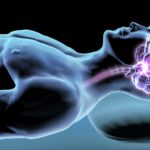In the U.S., several states have put legislation on the table highlighting their take on eliminating annual transitions of daylight saving time (DST). The motive behind their requests to pass such legislation, researchers say, is the potential long-term health effects, as indicated in a new study published in JAMA Neurology.
“People think the one-hour transition is no big deal, that they can get over this in a day, but what they don’t realize is their biological clock is out of sync,” said Beth Ann Malow, the study’s co-author.
“It’s not one hour twice a year. It’s a misalignment of our biologic clocks for eight months of the year. When we talk about DST and the relationship to light, we are talking about profound impacts on the biological clock, which is a structure rooted in the brain. It impacts brain functions such as energy levels and alertness.”
According to Malow, and her team of researchers at Vanderbilt University Medical Center, the transition to and from daylight saving time results in clinical implications impacting our biological clocks, which lasts longer than the days of transition initiated annually.
In the study, the health consequences linked to daylight saving time included cerebrovascular and cardiovascular function, during the first two days after the transition. Based on numerous studies, of over 100,000 participants, the results showed an increased risk of acute myocardial infarction in the week after the transition of daylight saving time during the spring.
“This increased risk may be associated with the effect of acute partial sleep deprivation, changes in sympathetic activity with increased heart rate and blood pressure, and the release of proinflammatory cytokines,” Malow stated in the findings.
Moreover, in a survey of 55,000 participants, the findings suggested that adjustments in time zone shifts were simpler in the fall but considered complex during the spring. Additionally, on average, sleep is reduced by 15 to 20 minutes among adults in the U.S. due to daylight saving time transitions.
“There was a lower quality of sleep reported in participants up to 2 weeks afterwards during the spring season,” Malow wrote.
Based on the results, Malow concluded: “Transitions to DST have documented detrimental associations with the brain, specifically ischemic stroke, with the risk of myocardial infarction and well-being also affected.”
“Additional studies are needed to understand the causes of these detrimental effects and the role of sleep deprivation and circadian disruption. Based on these data, we advocate for the elimination of transitions to DST.”


